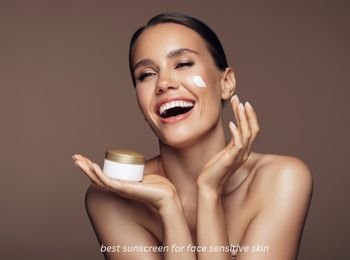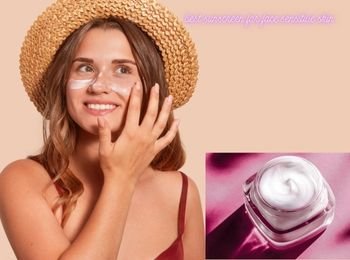Best Sunscreens for Sensitive Skin Protection
- August 7, 2024
- Uncategorized
- 6 mins read
Best Sunscreens for Sensitive Skin Protection
Sensitive skin requires special care, especially when it comes to sun protection. Using the wrong sunscreen can lead to irritation, redness, and breakouts. That’s why finding the best sunscreen for face sensitive skin is crucial. In this guide, we’ll explore top sunscreens that cater to sensitive skin, ensuring you stay protected and comfortable under the sun.
Why Sensitive Skin Needs Special Sunscreen
Sensitive skin reacts more easily to external factors, including the ingredients found in many sunscreens. This can lead to discomfort and adverse reactions. The best sunscreen for face sensitive skin is formulated to minimize these risks while providing effective protection against UV rays.
Key Ingredients to Look For
When choosing the best sunscreen for face sensitive skin, look for these soothing and protective ingredients:
- Zinc Oxide: A mineral that provides broad-spectrum protection and is gentle on the skin.
- Titanium Dioxide: Another mineral sunscreen that is less likely to irritate.
- Aloe Vera: Known for its soothing properties.
- Chamomile Extract: Reduces inflammation and calms the skin.
- Niacinamide: Helps to strengthen the skin barrier and reduce sensitivity.
Ingredients to Avoid
Certain ingredients can exacerbate sensitive skin conditions. Avoid the following when selecting the best sunscreen for face sensitive skin:
- Fragrances: These can cause irritation and allergic reactions.
- Alcohol: Often found in sunscreens to create a matte finish, but can be drying and irritating.
- Chemical Filters: Ingredients like oxybenzone and avobenzone can be harsh on sensitive skin.
Top Sunscreens for Sensitive Skin
1. La Roche-Posay Anthelios Mineral Zinc Oxide Sunscreen SPF 50
La Roche-Posay is known for its gentle formulations suitable for sensitive skin. This sunscreen features 100% mineral UV filters, providing broad-spectrum protection without irritation. The lightweight, non-greasy texture makes it ideal for daily use.
Why it’s the best sunscreen for face sensitive skin:
- Fragrance-free
- Water-resistant
- Contains soothing thermal spring water
2. EltaMD UV Clear Broad-Spectrum SPF 46
EltaMD UV Clear is a dermatologist’s favorite for sensitive skin, especially for those prone to acne or rosacea. It contains zinc oxide and niacinamide, which help to calm and protect the skin.
Why it’s the best sunscreen for face sensitive skin:
- Oil-free
- Lightweight and non-comedogenic
- Reduces redness and irritation
3. Neutrogena Sensitive Skin Face Sunscreen SPF 50
Formulated specifically for sensitive skin, this Neutrogena sunscreen offers powerful protection with a gentle touch. It uses 100% mineral sunscreen ingredients to shield the skin from harmful UV rays.
Why it’s the best sunscreen for face sensitive skin:
- Hypoallergenic
- Free from fragrances and dyes
- Gentle on the skin
4. Aveeno Positively Mineral Sensitive Skin Sunscreen SPF 50
Aveeno’s mineral sunscreen provides broad-spectrum protection with zinc oxide while being gentle enough for sensitive skin. It’s enriched with oat extract to soothe and nourish the skin.
Why it’s the best sunscreen for face sensitive skin:
- Dermatologist-recommended
- Oil-free and non-comedogenic
- Soothing oat formula
5. Blue Lizard Australian Sunscreen Sensitive SPF 30+
Blue Lizard is a popular choice for those with sensitive skin, offering effective sun protection with zinc oxide and titanium dioxide. Its mineral-based formula ensures it is gentle on the skin while providing high protection.
Why it’s the best sunscreen for face sensitive skin:
- Free from parabens and fragrances
- Dermatologist-tested
- Water-resistant

Application Tips for Sensitive Skin
Even the best sunscreen for face sensitive skin can cause issues if not applied correctly. Follow these tips to ensure optimal protection and comfort:
- Patch Test: Before using a new sunscreen, do a patch test to ensure it doesn’t cause a reaction.
- Apply Generously: Use enough sunscreen to cover your face thoroughly. A nickel-sized amount is generally recommended.
- Reapply Often: Sunscreen should be reapplied every two hours, or more frequently if swimming or sweating.
- Layering Products: If using other skincare products, apply sunscreen last to ensure it forms an effective protective barrier.
Additional Skincare Tips for Sensitive Skin
Beyond finding the best sunscreen for face sensitive skin, consider these additional tips to maintain healthy and protected skin:
- Gentle Cleansing: Use a mild, fragrance-free cleanser to avoid stripping the skin of its natural oils.
- Hydration: Keep your skin hydrated with a soothing, non-irritating moisturizer.
- Avoid Triggers: Identify and avoid skincare ingredients or environmental factors that trigger sensitivity.
- Sun Protection Clothing: Complement sunscreen with hats and sunglasses for additional protection.
Conclusion
Protecting sensitive skin from the sun requires careful selection of the right sunscreen. By choosing the best sunscreen for face-sensitive skin, you can enjoy the outdoors without worrying about irritation or damage. Products like La Roche-Posay Anthelios Mineral Zinc Oxide Sunscreen SPF 50 and EltaMD UV Clear Broad-Spectrum SPF 46 are excellent choices, providing effective sun protection while being gentle on sensitive skin. Remember to apply generously and reapply regularly for the best results.
Sensitive skin deserves special care, and with the right sunscreen, you can maintain healthy, protected skin every day.
A sunscreen suitable for sensitive skin is typically free from harsh chemicals, fragrances, and alcohol, and contains soothing ingredients like zinc oxide, titanium dioxide, aloe vera, and chamomile extract. These formulations minimize the risk of irritation and allergic reactions.
While you can use regular sunscreen, it’s not recommended for sensitive skin as it may contain ingredients that can cause irritation or allergic reactions. It’s best to choose sunscreens specifically formulated for sensitive skin.
Regardless of skin type, sunscreen should be reapplied every two hours, or more frequently if you’re swimming or sweating. This ensures continuous protection against UV rays.
Yes, mineral sunscreens containing zinc oxide and titanium dioxide are often better for sensitive skin because they sit on top of the skin and reflect UV rays without being absorbed, reducing the risk of irritation.
Avoid sunscreens that contain fragrances, alcohol, and chemical UV filters like oxybenzone and avobenzone, as these can cause irritation and allergic reactions in sensitive skin.
While a moisturizer with SPF can provide some protection, it often isn’t as effective as a dedicated sunscreen. For optimal protection, especially for sensitive skin, use a sunscreen specifically formulated for sensitive skin.
Signs of irritation from sunscreen include redness, itching, burning, or a stinging sensation after application. If you experience these symptoms, discontinue use and try a different product formulated for sensitive skin.
Yes, many sunscreens for sensitive skin include hydrating ingredients like aloe vera, glycerin, and hyaluronic acid, which help to keep the skin moisturized while providing sun protection.
Absolutely. Look for sunscreens that are lightweight and non-greasy, making them suitable as a base for makeup. Ensure the sunscreen is fully absorbed before applying makeup.
Yes, UV rays can penetrate clouds and windows, so it’s essential to wear sunscreen every day, even on cloudy days or when you’re indoors, to protect your sensitive skin from UV damage.



